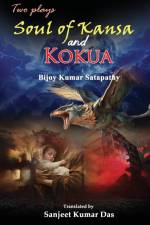von Bijay Kumar Satapathy
24,00 €
The Soul of Kansa is of two Acts. Act I highlights the Indian myth, as prescribed in the Mahabharat, of the conflict of vice and virtue. The protagonist, Kansa, stands for evil. This protagonist was of the Dwapar Yuga (Three thousand years earlier was in this Indian peninsula). A tyrannical ruler Kansa oppressed the ordinary people greatly. Kansa is not with us physically; his soul is very much alive in the society. The character Andhak represents the soul of Kansa.The second play, Kokua, revolves around Dhamaguda, a tribal village. Kokua is an imaginary, frightful, and mysterious character of the Mahabharata, one of the great epics of India. The Mahabharata of India has many regional versions in different languages. The Kokua anecdote is well described in Sarala Das's Odia Mahabharata. Kokua comes down, when the degree of doubt, disbelief, terror, murder, and anarchy overpowers the world. Because of the industrial growth and development, the tribes lose their land, rivers, brooks, forests, and simple lifestyles. Their mind gets polluted. The tribes are deprived of their natural rights. The issues of these locals are very beautifully reproduced. Shyamananda is the owner of the Ashram wherein Atanu was a disciple and later becomes the Police Inspector. At the same time, Ajay Marandi was also a disciple and later becomes a Naxal leader or Area Commander. Shyamananda's erstwhile belief was that he would guide rightly the students of this village to follow the path of non-violence. His dream is shattered in due course of time. Shibu (Also known as Sadashiba Rao) is a character supporting the Maoist movement.

